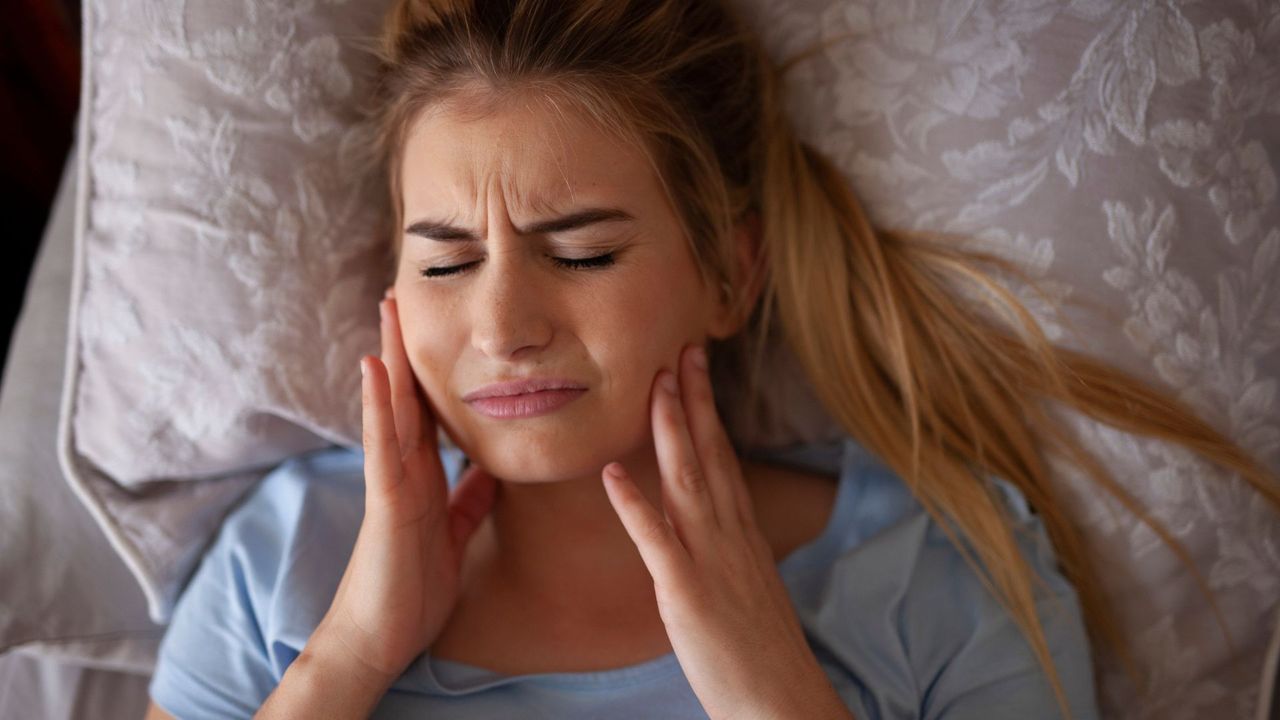Waking with a Headache? You May Be Grinding Your Teeth, Says Expert

Understanding Bruxism and Its Impact on Your Health
Whether you're waking up with sensitive teeth, headaches, or muscle aches in your jaw, you might be grinding your teeth during sleep without even realizing it. While this may not seem like a major issue, the symptoms of bruxism — the medical term for this condition — can significantly affect your smile and overall well-being. If left unaddressed, bruxism can lead to costly dental procedures, poor sleep quality, and other complications.
To gain a deeper understanding of bruxism and how to manage it, we've consulted experts who explain what it is, its causes, and effective ways to stop this harmful habit.
What Is Bruxism?
Bruxism refers to the repetitive activity of clenching or grinding the teeth, often occurring during sleep. It's more common than many people realize, with approximately 30% of individuals experiencing it at some point in their lives. This condition can manifest as either sleep bruxism, where the grinding occurs while asleep, or awake bruxism, which happens during the day.
According to Aaron Glick, DDS, CEO of Spira Dental in Houston, Texas, "Bruxism is a repetitive jaw activity that includes clenching, grinding, or sliding the jaw forward during sleep." While it may seem like a minor annoyance, bruxism can lead to long-term dental damage, jaw pain, disrupted sleep, and persistent headaches.
It's important to recognize that bruxism isn't just a dental issue; it's also a sleep disorder. The condition can cause micro-arousals — brief awakenings that disrupt sleep without the person being aware of them.
Symptoms of Teeth Grinding at Night
You don't need to hear yourself grinding your teeth to know that you're doing it. Common signs include:
- Jaw soreness or tightness upon waking
- Morning headaches
- Earaches
- Flattened or more sensitive teeth
- Changes in your bite or loosened fillings
- Popping or clicking when opening your mouth
- Tooth sensitivity
- Tinnitus (ringing in the ears)
- Interrupted sleep or waking up groggy
Sometimes, a partner may be the first to notice the grinding, as it can sound like chewing on your own teeth. Even if no one hears it, your mouth will likely show signs of the condition.
Why Do People Grind Their Teeth at Night?
Teeth grinding isn't a one-size-fits-all issue, and neither are its causes. Some of the most common reasons include:
-
Stress and Anxiety
Emotional tension and anxiety during the day often translate into clenching or grinding at night. Stress can also disrupt sleep cycles and harm the quality of rest. -
Sleep Apnea
Bruxism is closely linked to sleep disorders like obstructive sleep apnea (OSA). Micro-arousals caused by pauses in breathing can trigger jaw muscle activity. -
Medications
Certain prescription drugs, such as antidepressants, ADHD medications, and stimulants, can increase the risk of grinding. These medications may impact neurotransmitters like serotonin or dopamine, leading to muscle hyperactivity during sleep. -
Consumption of Intoxicants
Alcohol, nicotine, and high caffeine intake can worsen nighttime clenching and grinding. A nightcap may seem relaxing but could actually contribute to the problem.
How to Stop Grinding Your Teeth at Night
While there's no universal cure, several strategies can help reduce bruxism symptoms and protect your teeth. Experts recommend identifying the root cause before exploring solutions.
Your dentist may suggest the following approaches:
-
Improve Sleep Hygiene
Poor sleep hygiene can worsen bruxism by increasing nighttime awakenings and tension. Establishing a regular sleep schedule, keeping your bedroom dark and cool, avoiding screens before bed, and limiting alcohol consumption can help. -
Wear a Mouthguard
A custom-made night guard is one of the most effective tools against bruxism. It positions the jaw in a comfortable position, reducing muscle activity and preventing damage. Over-the-counter options may not align your bite correctly, so it's best to consult your dentist. -
Create a Stress-Reducing Routine
If stress is a factor, consider developing a calming bedtime routine that includes activities like reading, meditation, breathing exercises, and yoga. -
Cognitive Behavioral Therapy (CBT)
For chronic stress or anxiety, CBT can help manage emotional triggers that contribute to nighttime grinding. A therapist can also identify unconscious behaviors that may be exacerbating the issue. -
Muscle-Relaxing Exercises
Techniques such as biofeedback, muscle relaxants, or Botox injections may provide relief for those experiencing jaw pain. Simple awareness exercises, like checking if your teeth are clenched during the day, can also help.
Can You Cure Bruxism?
The answer depends on the underlying cause. Some people see their symptoms disappear after making lifestyle changes, such as reducing stress or adjusting medications. Others may require ongoing management, especially if the issue stems from a structural problem like a misaligned bite.
Should You Be Concerned About Teeth Grinding at Night?
While bruxism may seem harmless, it can have serious consequences if left untreated. It can damage your jaw, disrupt your sleep, and lead to expensive dental repairs. Recognizing the signs and taking action early is crucial.
If you wake up with headaches, jaw pain, or sensitivity, it's important to consult your dentist or healthcare provider. Early intervention can prevent long-term complications and improve your overall quality of life.
Post a Comment for "Waking with a Headache? You May Be Grinding Your Teeth, Says Expert"
Post a Comment